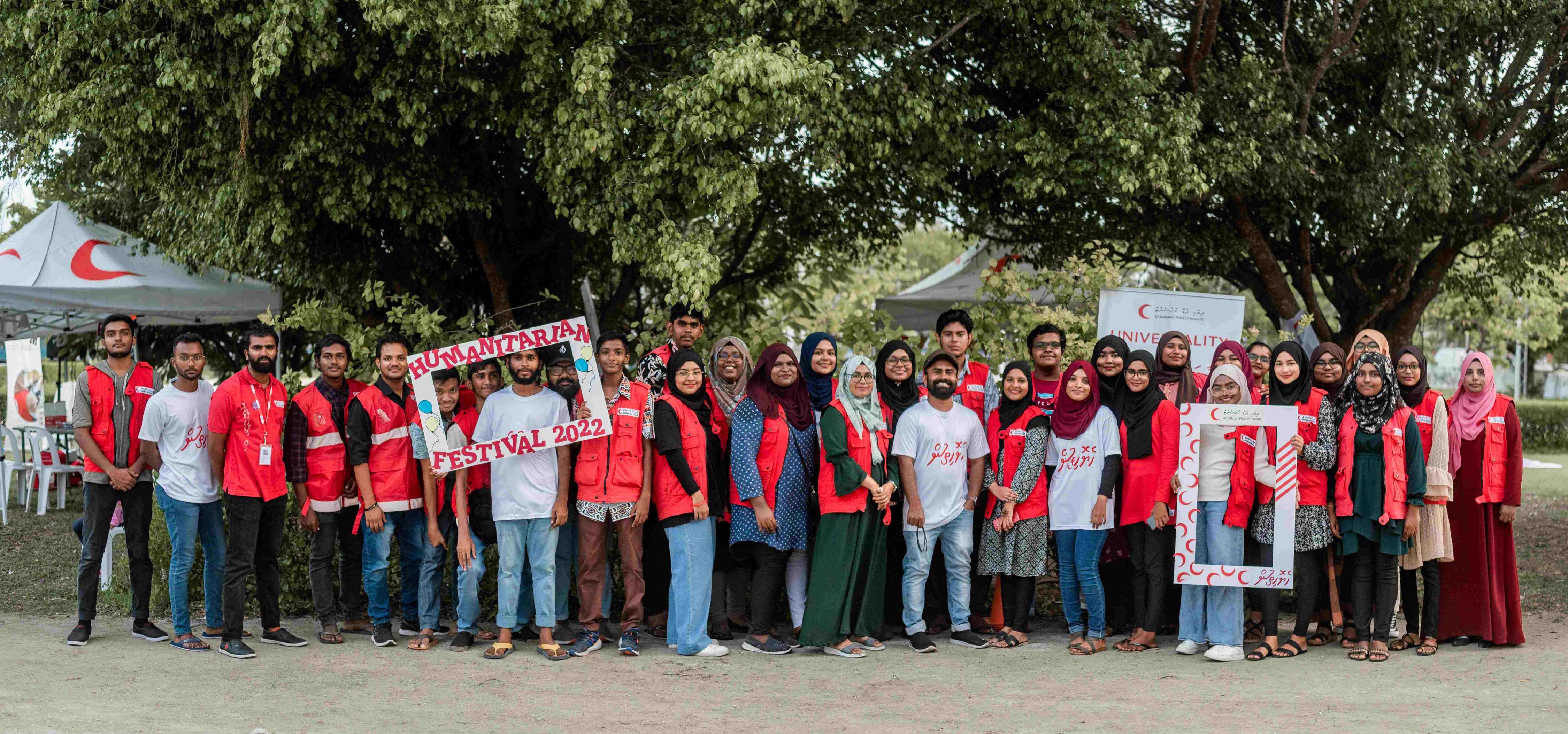Our story

Following the 2004 Indian Ocean Tsunami, the International Federation of Red Cross Red Crescent Societies and number of Partner National Societies became engaged in the Tsunami relief and recovery operations in the Maldives. The extensive interventions from IFRC and Partner National Societies served as an introduction of the Red Cross Red Crescent Movement to the Maldivian Community.
The process of establishing a National Society began in 2005, initiated by a group of volunteers from the Maldivian community who recognized the need for a Red Cross Red Crescent Society in the Maldives, that will provide humanitarian services to vulnerable segments of the Maldivian population. Since 2007, the process was led by the Interim Planning Group (IPG) with the support of the IFRC delegation in the county. The process involved two main elements: a) legal recognition through national legislation (an MRC Act) and b) subsequent institutional formation through the completion of MRC’s first General Assembly and a process to develop MRC into a relevant, well-functioning Red Crescent Organization, with presence and activities across the country, eventually leading to international recognition by the ICRC and membership in the IFRC.
A new National Society was born
On 28th April 2009 the Maldivian Red Crescent Act was passed by the Maldivian Parliament. President Mohamed Nasheed ratified the Maldivian Red Crescent Act on 7th May 2009. On 16th August 2009, the First General Assembly of the Maldivian Red Crescent took place in Male’. This inaugural General Assembly was held three months after the MRC law was ratified and enacted.
The ceremony to inaugurate the Maldivian Red Crescent was officiated by the President of the Republic of Maldives, HE Mohamed Nasheed, who said that the work to establish the Red Crescent had been “laborious”. He also stressed how the 2004 Indian Ocean tsunami had prompted the need for a National Society. Acknowledging the work carried out by the Red Cross in the aftermath of the Tsunami, he said, “no Maldivian is unaware of the extent of what I call a beautiful piece of work done by the Red Cross Red Crescent in the Maldives.”
The General Assembly elected the first governing board of the Maldivian Red Crescent. Nine members were elected, with the tenth appointed by the government, in line with the national society’s statues. The board members were elected from amongst 80 representatives drawn from Male’ and the country’s atolls. They include men and women, young and old, nurses, teachers, shopkeepers as well as divers, mechanics, and businesspeople. The board and representatives make up the first registered volunteers of the Maldivian Red Crescent.
13 years of continued humanitarian service
Since it's formation MRC has been at the forefront of humanitarian work in the Maldives. MRC has established itself as the largest humanitarian organization in the Maldives. As an organization that has been there for the people when they need it the most, MRC has been able to gain trust and sustain partnerships with key relevant public authorities and agencies through MRCs auxiliary role. MRC has been able to create positive impact and continues to build and maintain trust within communities so that MRC continues to provide humanitarian services impartially, neutrally, and independently.
Over the last 13 years, MRC has carried out successful programmes, interventions, and campaigns in the areas of Emergency Response, Disaster Preparedness, Epidemic preparedness and response, First Aid, Mental Health and Psychosocial Support, Patient Transport Services, Social care and Inclusion, Promoting Healthy living, and Youth empowerment.
Over the years, MRC has taken care of people who live in precarious and vulnerable conditions. One marginalized group the MRC has catered to is the migrants, regardless of their status or background. A significant portion of the migrant workers who live in the Maldives are reported to be undocumented or in irregular situations – adding to a host of other socioeconomic challenges faced while contending with serious human rights violations around not having safe working environments, regular wages, or decent living conditions.
Members and volunteers that make up MRC’s City Offices and units are part of community-based teams that have capacities in various areas ranging from emergency response, First Aid, Psychosocial Support, violence prevention, and epidemic control. MRC has continued to work on enhancing existing skills, adding to knowledge that is already there and helping to build and strengthen the necessary networks in island level so that institutions across sectors can come together and work better. This is also in alignment with the efforts towards effective decentralization of operations and developing the autonomy of MRC units. Each island has its own unique vulnerabilities and challenges, and it is those who live there who understand it best.
The MRC, through its work to better prepare communities for emergencies and disasters, and during response and recovery, prioritizes the inclusion of the needs of such populations and those affected in its humanitarian work. Whether it is through better risk communications and community engagement to enhance access to life-saving information, through the inclusion and participation of migrants as volunteers in the work that is done, by bridging capacities, and through lobbying and advocating with the relevant authorities, the MRC remains and will continue to remain steadfast in humanitarian work, to ensure that nobody is left behind.
---
Our Mission:
“To volunteer, participate and partner in delivering humanitarian services to the vulnerable”
Our Vision:
“To be a model National Society contributing to overcome humanitarian challenges”